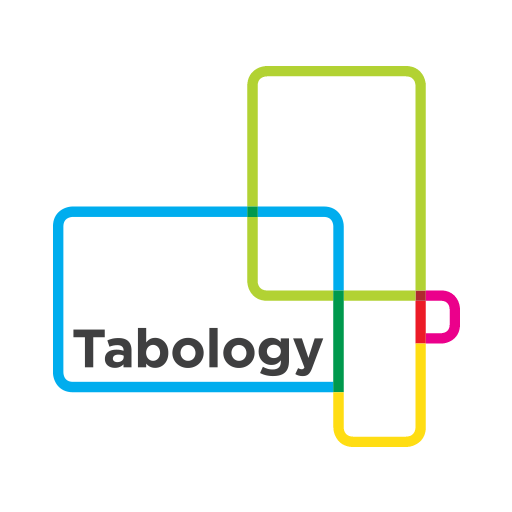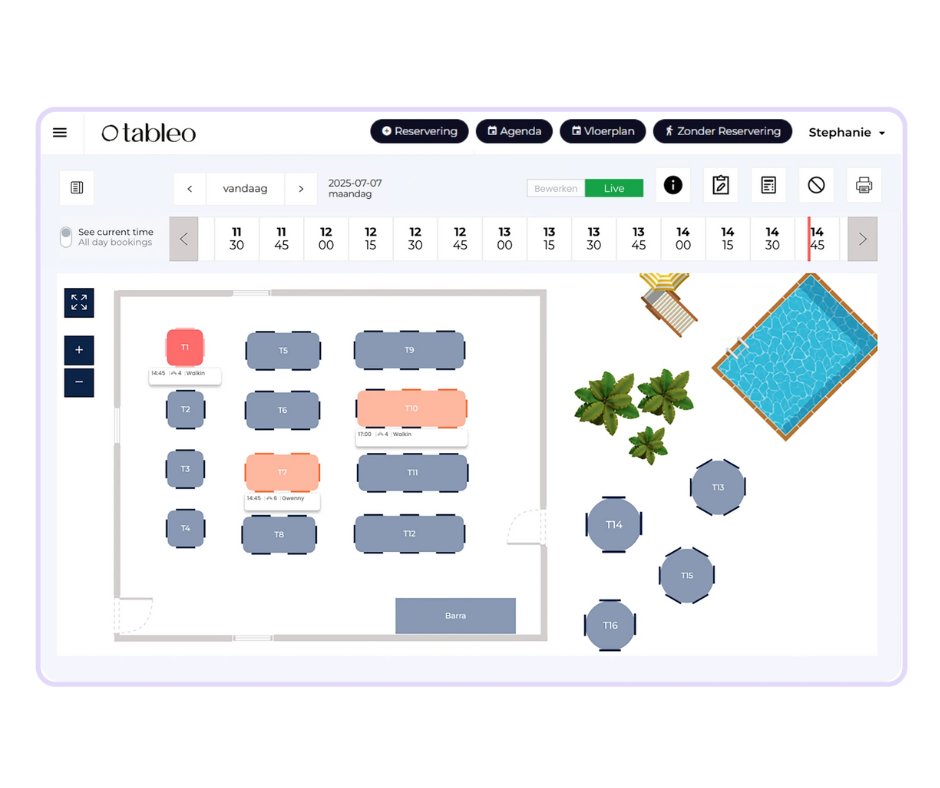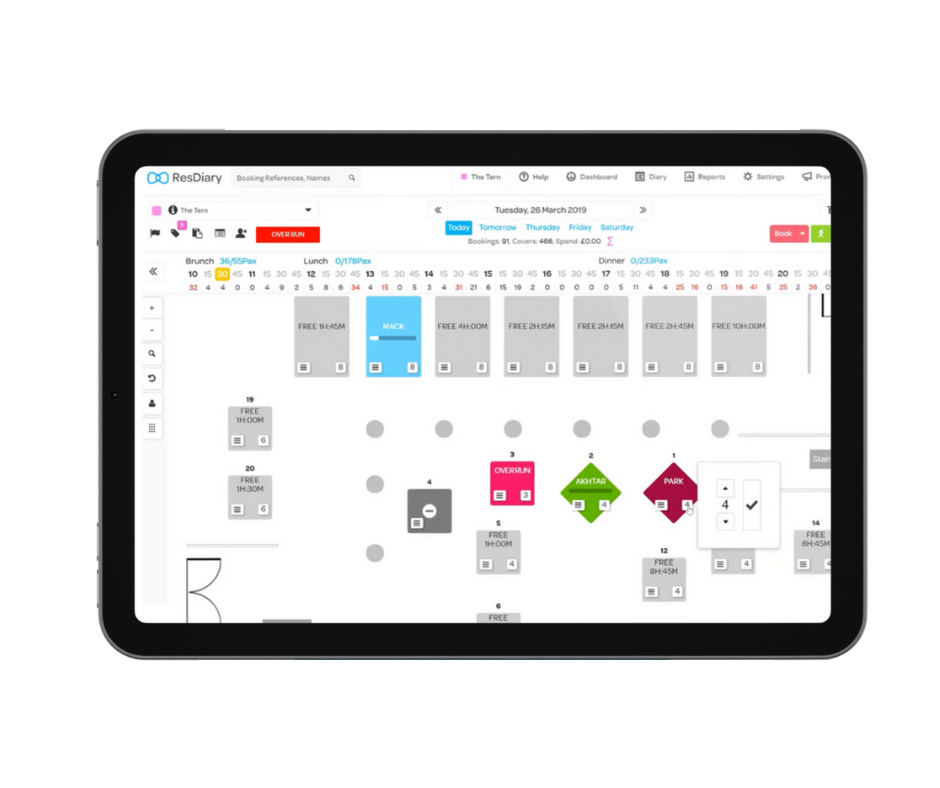7 restaurant booking systems compared
It's five minutes to five on your busiest night of the week. Tables are set, ovens are roaring, and your Early Bird regulars are already lined up at the door. It's battle stations. Or at least, that's what it feels like when the restaurant's busy.
And like any battle, your chances of victory depend on planning and preparation. That means knowing which is the best restaurant booking system for your venue.
A good one puts you in command. It gives you a clear view of your restaurant, helps you deploy your team most effectively, and prepares you for the thrills and spills the night will surely bring. But with so many booking systems out there, how do you choose the best one for your restaurant – one that makes the difference between calm and chaos, one that's streamlined and affordable?
We've gathered the intel on the most popular options, to help you make a better decision. We've scoured company websites to find out what unique features they offer. And we've looked at review sites including TrustPilot, Capterra, and G2 for insights into the user experience for each platform.
Scroll down for information each system's features, pricing, pros and cons. Here's a snapshot of their key details:
| Platform | Monthly Price (based on the plan that offers unlimited bookings and full features) | TrustPilot rating | Contract flexibility |
|---|---|---|---|
| Tabology | £59 (includes 1 x EPOS license, booking system, stock management, staff scheduling, and loyalty) | 4.9/5 (includes reviews for wider EPOS and management suite) | No contract - cancel, upgrade or downgrade anytime |
| Tableo | £109 | 4.4/5 | No contract, pay as you go |
| ResDiary | £245 | 3.2/5 | 90 day |
| SevenRooms | £370 | 1.4/5 | 12 months |
| ToGo | Contact for a bespoke quote | N/A | Contact for bespoke quote |
| OpenTable | £110 | 1.4/5 | 12 months |
| Dojo Bookings | £149 | 4.5/5 (includes reviews for payment processing) | 1-month rolling (no exit fee) |
Tableo
Tableo offers discovery and booking capabilities directly through the MICHELIN Guide website and app, providing a distinct channel for attracting high-end clientele. Its ‘crowd control’ feature can also help you manage peak times more effectively.
Its 'AI Assistant' can handle reservation requests and customer queries around the clock. They also offer customer chat support in 24+ languages and a promise of 'no ticketing systems, no nonsense' with a dedicated account manager.
Tableo is generally praised for its strong usability and customer support. It offers a free plan, allowing venues to start managing reservations without an upfront cost. However, this only gives you up to 100 covers and limited features.
To get access to features such as reporting, deposits, prepayments, SMS notifications and Reserve with Google, you must upgrade to their Organise package, which is £59 per month (£59 per month is also exactly what you pay for Tabology’s Pro plan, which includes a complete booking system with unlimited bookings, plus an EPOS system and tools for staff scheduling, stock management, loyalty and more).
Tableo also takes a small percentage charge on bookings made through third-party sites such as Google, TripAdvisor or social media, and charges its own 1% transaction fee on top of Stripe’s standard fees.
How much does Tableo cost?
Free up to 100 covers per month. Reserve with Google is free for the first month, then you must upgrade to Bronze. Does not include reporting, prepayments, deposits, no shows & SMS notifications.
Monthly packages:
- Organise: £59, unlimited bookings
- Grow: £79, online orders and payments, gift vouchers, SMS, waitlist
- Expand: £109, enhanced reports, cross-chain selling and customer engagement
Pros
- Free version available (although limited to 100 covers per month)
- Discovery and booking capabilities via Michelin Guide
- Praised for customer support
Cons
- Need to pay to get full access to features
- Does not integrate with any widely used POS systems in the UK
ResDiary
ResDiary emphasises its use of 'smart rules to control the flow of customers'. This includes functions such as setting time restrictions on larger bookings to prevent staff from being overwhelmed during peak times, and its W8list feature. These are designed to improve efficiency and customer experience.
The system can help a venue attract diners with bookings made directly from its website, social media, Reserve with Google, and DesignMyNight, with 0% commission.
It also boasts extensive connectivity, integrating with over 70 software partners, including other EPOS, PMS (Property Management Systems), marketing, and staff management systems.
However,
TrustPilot reviews, indicate mixed feedback around support and contracts, with some praising it but others reporting challenges. And many features, such as POS integration, online ordering and gift vouchers are only available as paid add-ons.
How much does ResDiary cost?
ResDiary do not publish pricing in the UK, but according to comparison site G2, it starts at £89 for 150 reservations per month, up to £245 for unlimited reservations per month. There is also a setup fee.
Pros
- W8list helps you manage walk-ins when you're full
- Integrations with over 70 software partners
- No commission on bookings taken from yours or 3rd-party websites
Cons
- Mixed feedback around support and contract flexibility
- Several important features only available as paid add-ons, leading to higher fees
SevenRooms
SevenRooms focuses heavily on guest personalisation, marketing, and multi-venue management. It supports online reservations in fourteen different languages, catering to an international clientele. Its 'Priority Alerts' system notifies high-value guests when last-minute reservation slots open, with the option for tiered access for VIPs and regulars.
It also enables sophisticated guest segmentation through 'condition-based auto-tags,' allowing for highly targeted marketing. For top-tier guests, SevenRooms offers a 'Private Line,' a direct SMS concierge service for VIPs to book tables, events, or experiences.
These high-end features may appeal to upscale establishments seeking sophisticated CRM capabilities. However,
recent TrustPilot reviews consistently report significant technical issues, including non-functional booking forms, unauthorised charges, and poor customer support response. With a 1.6/5 rating, potential users should carefully evaluate whether the advanced features justify the reported usability problems. Furthermore, its pricing likely makes it unsustainable for smaller independent restaurants.
How much does SevenRooms cost?
SevenRooms does not publish pricing, but tech comparison site Capterra states that it starts at $499 (approx £370) per month.
Pros
- Extensive marketing and guest personalisation capabilities
- Tiered access lets you prioritise 'VIP' guests
- Online reservations in 14 languages
Cons
- Reviewers report technical challenges and lack of customer support
- High price point makes it unviable for many smaller establishments

Togo booking system
The Only Way Togo is worth considering for its advanced tools. Its AI-driven system adjusts your table plan in real time as bookings come in, helping you maximise space quickly and effectively. Once the system is trained on your layout and preferences, it makes smart decisions based on your business needs.
You can sell packages and ticketed & seated events directly through the platform, and its multi-activity booking system also allows users to chain together activities, dining and packages in one seamless journey. This makes it a good option for competitive socialising venues and event spaces.
The system also automates the collection of upfront deposits, and makes event management easier by simplifying pre-order, pre-payments, allergen tracking and menu choices.
Togo's inbuilt marketing tools let you collect customer data so you can send out targeted email campaigns without needing third-party software, with gift vouchers, promo cards, loyalty schemes and membership systems included in the package. During quieter periods, the ability to send one-click marketing to your database in real time is an easy way to offer fresh discounts and incentives.
How much does Togo Booking System cost?
Togo does not publish pricing, but states it charges a flat fee, with no commission.
Pros
- AI systems streamline your floor management
- Multi-activity booking system can chain together activities for seamless process
- Inbuilt marketing tools enable quick targeted marketing
Cons
- There are no customer reviews or pricing information available online
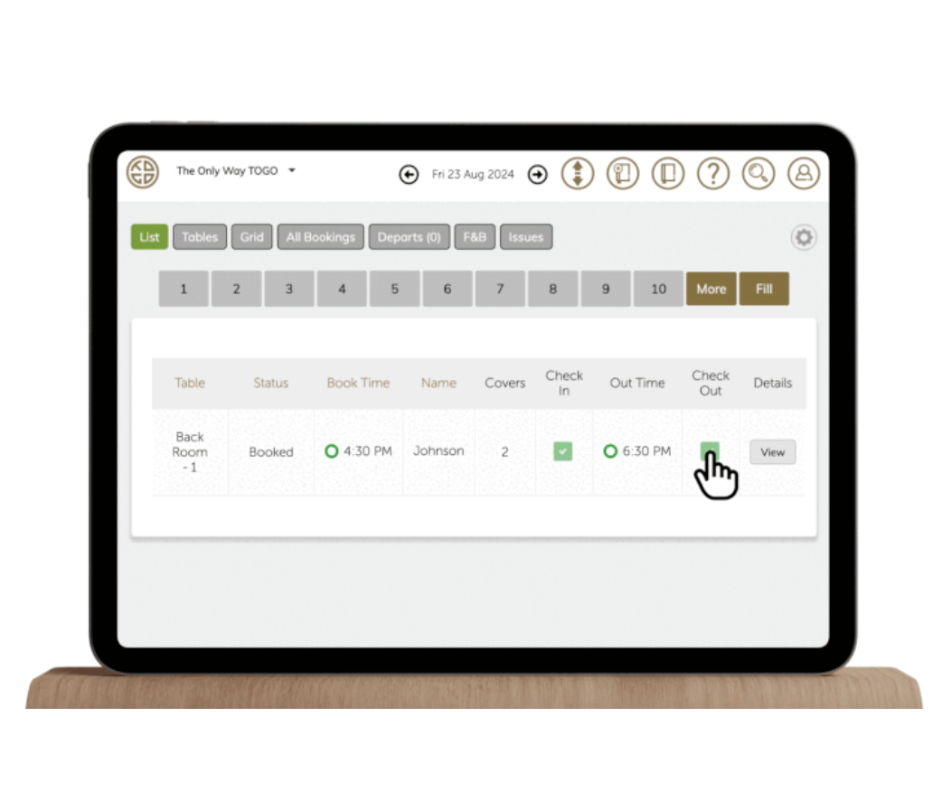
OpenTable
OpenTable is perhaps the most well-known booking platform, serving as a way for diners to find restaurants around the world. It promises access to the largest diner network of valuable guests, positioning itself as a way to ensure a regular stream of covers.
It gives restaurants visibility on their discovery platform, and its database stores and tags diners’ preferences when they book, so you can tailor and personalise your service. One-off promotions can boost your visibility during slower periods
OpenTable can minimise no-shows with deposits and card holds.
However, OpenTable's TrustPilot score of 1.4/5 bears consideration. Both diners trying to book tables and restaurant operators using the system report issues with hidden fees, lost bookings, and trouble reaching support. It also charges commission on every diner booked through its platform, on top of monthly subscription fees.
How much does OpenTable cost?
Not published, but Capterra states that it starts at $149 (£110) per month. There is also a charge for every cover booked through OpenTable (the amount is not published on their website, but is reported to be around £2 per diner booked through their platform).
Pros
- Can expose your restaurant to a vast diner network
- Extensive marketing capabilities
- Deposits and card holds to reduce no-shows
Cons
- Issues reported by both diners and restaurants using the system
- Commission
on top of monthly fees impacts restaurants' profitability
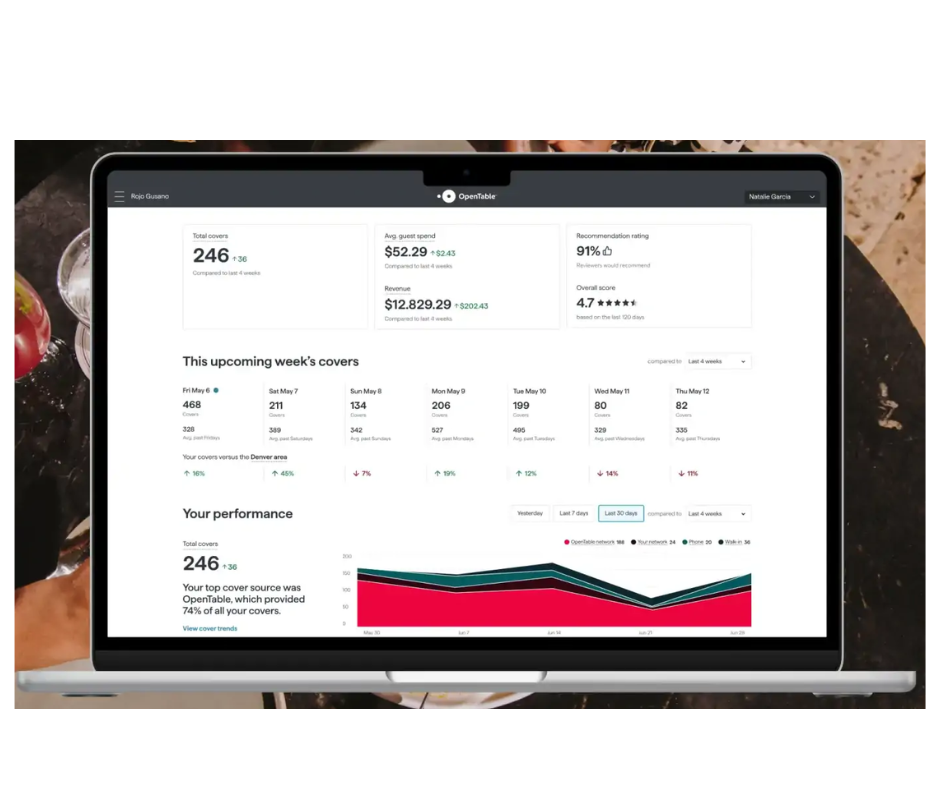
Dojo Bookings
Dojo Bookings is a booking system available to venues using Dojo for payments. Built-in tools such as Reserve with Google, tracked marketing campaigns and SMS reminders help to drive bookings. It gives you plenty of features, such as pre-orders and unlimited SMS guest chat, for a transparent monthly fee.
Its 'virtual queuing' system allows restaurants to add guests to a virtual queue rather than assigning a time slot, which can maximise service hours by getting people sat down as soon as there's a table ready. For busy, quick-turnaround restaurants in high-footfall areas like city centres, it can be ideal. Dojo Bookings can also enhance your visibility as you can get in front of over 500,000 diners on the Dojo: Dining Experiences app.
However, you must use Dojo for payments, which involves separate fees for card transactions, hardware, and the platform. These additional fees are tailored to your size and card payment turnover.
How much does Dojo Bookings cost?
£149 per month, plus fees for card transactions, hardware, and use of the platform.
Pros
- Good range of features as standard, including marketing and virtual queuing
- Seamless integration with Dojo payments
- Get exposure on the Dojo: Dining Experiences
Cons
- You must use Dojo for payments
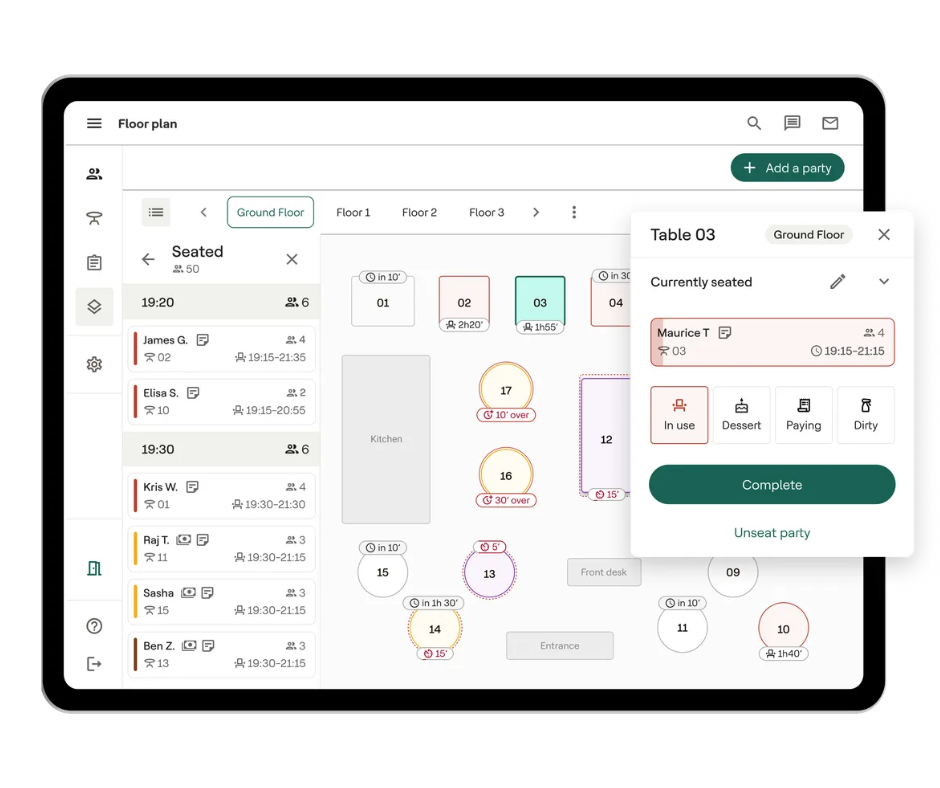
Tabology
At Tabology, we've built a reservation system directly into your EPOS platform, rather than a separate standalone service. This makes the booking process smoother as it enables staff to manage every aspect without switching between different interfaces. While this does require switching your EPOS to Tabology, it's a short-term adaptation with permanent benefits to efficiency and service, which outweigh the ongoing hassle and expense of separate platforms.
Our system includes all the booking features you expect from standalone platforms – take bookings from your website and Reserve with Google, plus table management, deposits, pre-orders, email reminders and more – alongside EPOS-specific functionality.
Pre-orders automatically sync with kitchen systems and stock management. You can also make it easy for people to join your loyalty schemes and sign up for marketing when they book. Bookings also connect with the staff scheduling system – when you're building your weekly rota, the number of covers you have booked in each day displays alongside your sales forecast, so you can plan ahead more accurately.
We offer transparent monthly pricing without commission fees or long-term contracts. The platform includes a two-week free trial and offers dedicated support through a Telegram channel with response times under two minutes – a benefit highly valued by our TrustPilot reviewers.
How much does Tabology cost?
£59 per month for Pro plan (includes 1x EPOS licence and booking system, plus advanced tools for staff scheduling, loyalty, stock control, and reporting & analytics). This plan gives you unlimited covers.
Pros
- True integration, contributing to more accurate stock, staffing, and kitchen management
- Tailor your booking process to each different type of customer and experience you offer
- Hospitality-trained support teams respond within 2 minutes, so you never have to worry about downtime in busy periods
- Transparent monthly pricing – no contracts, no commission, unlimited bookings
Cons
- Only available to Tabology EPOS users
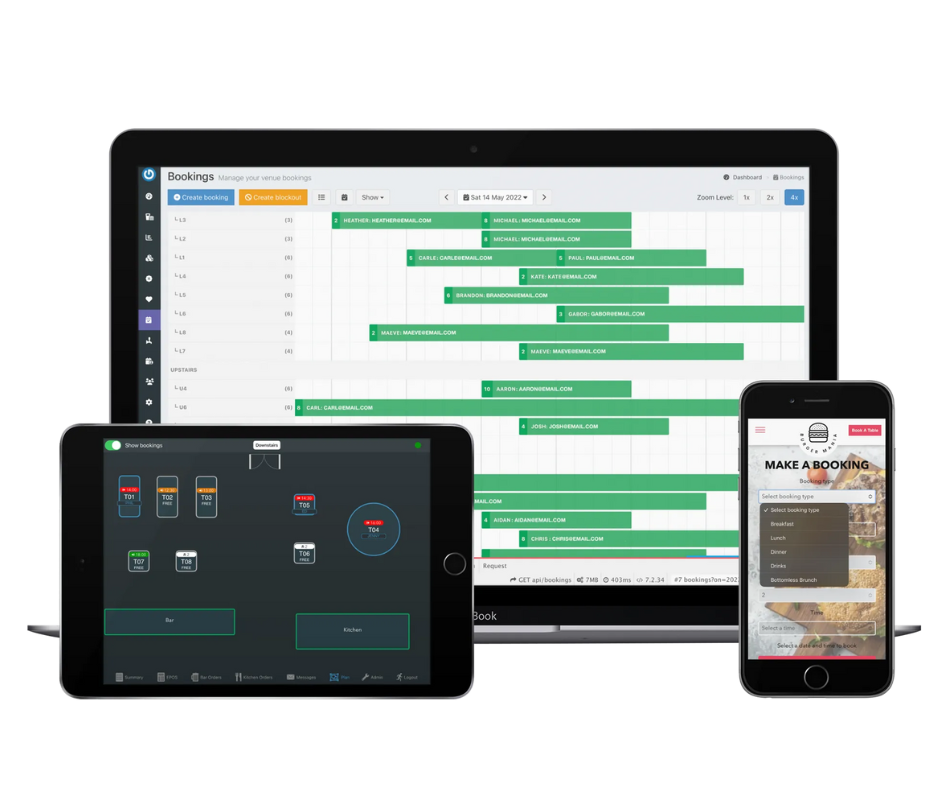
Conclusion – which restaurant booking system is best?
In the heat of service, your booking system needs to give you clarity, control, and confidence. The right system can mean the difference between an organised victory and a messy retreat.
Each platform offers different strengths, whether that's network reach, advanced marketing features, or AI-powered efficiencies. However, many operators find themselves juggling multiple monthly subscriptions – one for bookings, another for EPOS, and perhaps even more for staff scheduling and inventory management.
The alternative is choosing a POS-integrated booking system where everything works together seamlessly. With integrated solutions like ours, bookings connect directly to your EPOS operations, managing reservations, pre-orders, and guest communications from a single interface. This consolidated approach eliminates platform switching during service and reduces your monthly subscription costs.
